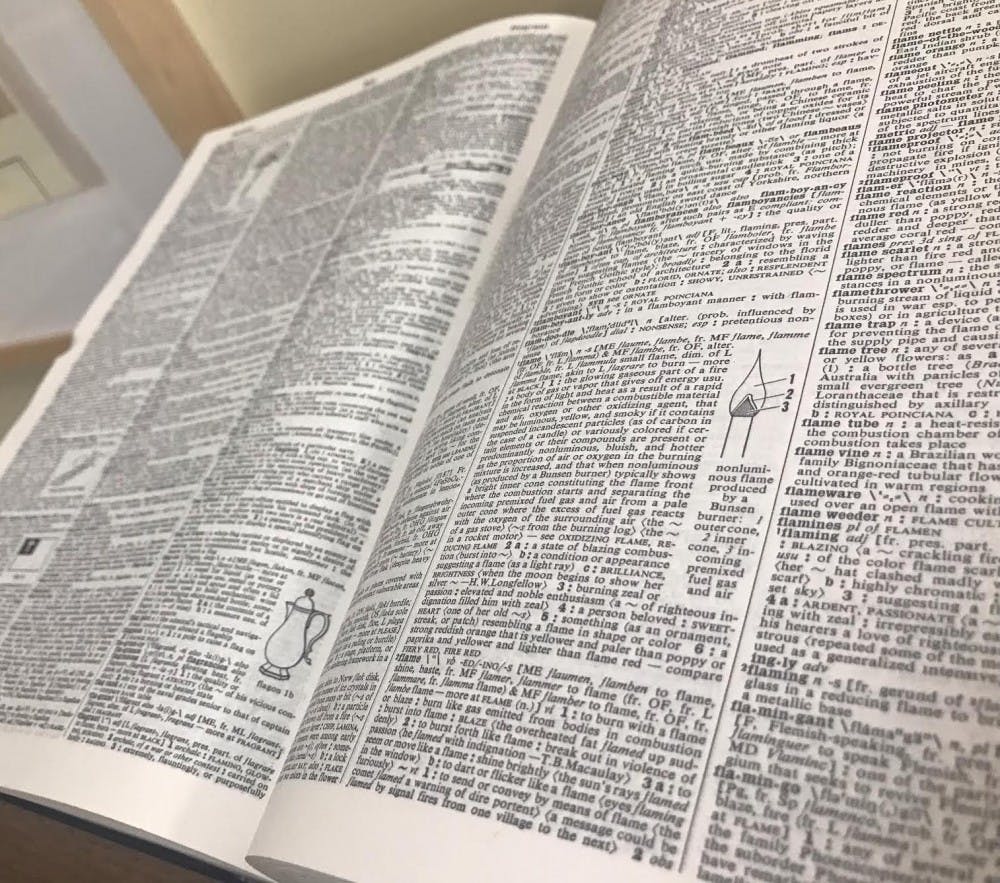There are 26 letters in the English alphabet. There are 403,291,461,126,605,635,584,000,000 possible combinations of these letters. This number does not even take into account homonyms and homographs, words spelled the same way but with different meanings. There are 171,476 words in current use, according to the Second Edition Oxford English Dictionary published in 1989. There are thousands of words to learn and millions more to be created.
Joe Essid, the director of the Writing Center at the University of Richmond, started the Word of the Week in 2017 to help students broaden their vocabularies, he said in an email. He submits his Word of the Week to SpiderBytes.
Essid also posts his Word of the Week to a personal blog in order to promote the idea of a more exhaustive vocabulary to a larger audience, he said.
“UR attracts decent writers, but most of them do not read enough serious fiction or nonfiction,” Essid said. “There’s no other method as effective in building a vocabulary. My blog intends to spark an interest in that long task. In and of itself, it is no solution.”
Limiting smartphone use would aid the process of building a better vocabulary, Essid said.
“Put down the dopamine dispenser called a smartphone and pick up books,” he said. “If you must use the phone, use it to read short work in good journals for general but smart audiences, like The Atlantic Monthly. That’s one source of whatever vocabulary I now have. But fiction? While I’m reading the Harry Potter books on my iPad, I prefer paper for fiction. Go rediscover it.”
It is more important than ever to understand the power of words because we live in an age of manipulation and must be able to see through the words thrown at us by those in power, Essid said.
"If you do not have the word for an idea, does your brain even have the concept?” Essid said.
Sophomore TJ Tann expresses similar beliefs about words' importance.
“Words are very powerful,” Tann said. “They’re a part of the process of changing things. They are the median between thoughts and change. If anything, they’re a kickstarter.”
Tann’s favorite word is "word" itself. “It’s kind of counter-intuitive, and it’s funny,” he said.
To choose the Word of the Week, Essid picks words he encounters that intrigue him and work well in academic prose, he said. More recently, faculty members, staff members and students have nominated Word-of-the-Week contenders for him to consider.
Enjoy what you're reading?
Signup for our newsletter
Tann peruses the Word of the Week when he sees it in SpiderBytes, but sophomore Juliana Dreyfuss said she had never read the weekly blurb.
Dreyfuss studies rhetoric and communications at UR, and through that field, she said, she has recognized the importance of words and how they function as a medium of communication.
“The meaning behind [words] create social constructs,” Dreyfuss said.
Dreyfuss does not have a favorite word and never has, she said.
“It’s kind of like when someone asks what your favorite movie or song is,” Dreyfuss said. “There’s so many. I have never really had one.”
Contact contributor Holly Schiltz at holly.schiltz@richmond.edu.
Support independent student media
You can make a tax-deductible donation by clicking the button below, which takes you to our secure PayPal account. The page is set up to receive contributions in whatever amount you designate. We look forward to using the money we raise to further our mission of providing honest and accurate information to students, faculty, staff, alumni and others in the general public.
Donate Now



